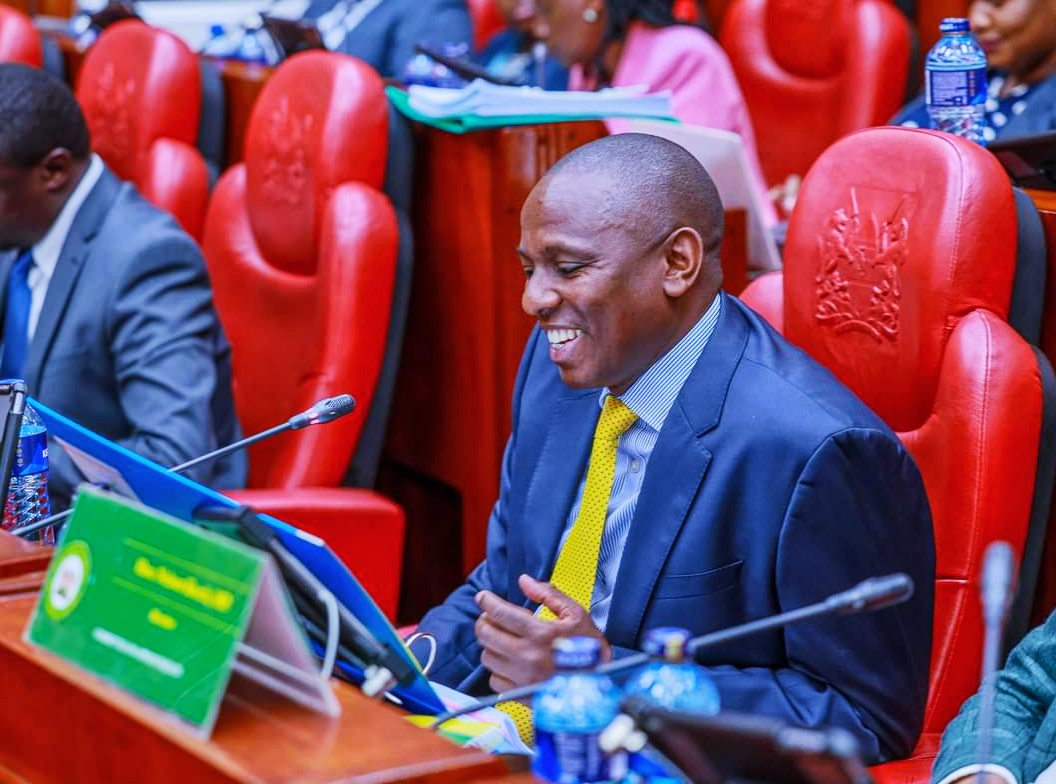In a development that is likely to trigger unrests from the Gen Z that were vocal during recent demos that saw Pres William Ruto swallow an humble pie by rejecting the Finance Bill 2024 in totality, Kikuyu MP Kimani Ichung’wah, who also serves as the Majority Leader in the National Assembly, has sponsored the Kenya Revenue Authority (Amendment) (No. 2) Bill, 2024.
The bill has been met with a wave of criticism from Kenyans who recall the Finance Bill 2024, which led to protests across the country in June and July.
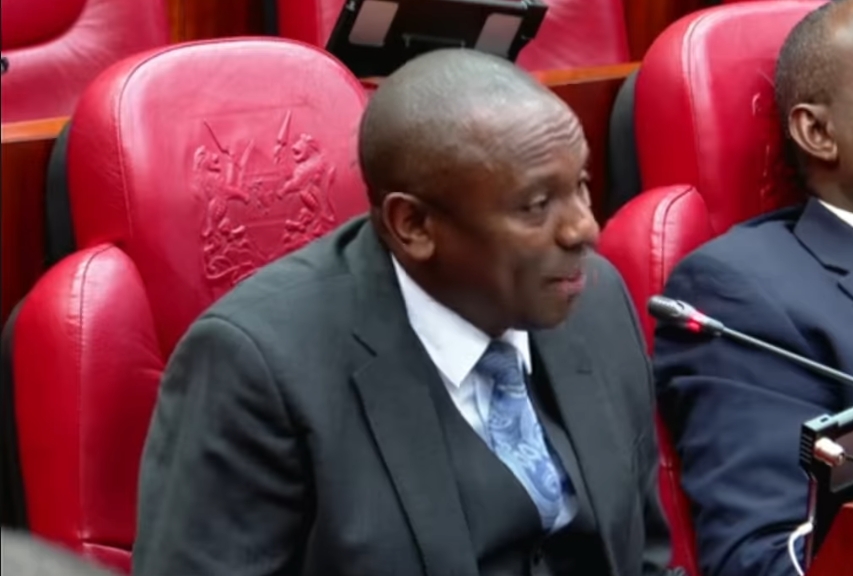
Kikuyu MP Hon Kimani Ichung’wah during a past parliamentary sitting. Photo: Kimani Ichung’wah/Facebook
The Finance Bill 2024 had proposed several controversial tax measures, leading to mass demonstrations that were violently suppressed.
Many Kenyans feel the new KRA Amendment Bill is a reintroduction of some of those contentious measures, with added clauses that have not been well-received by the public.
The bill, which was introduced in the National Assembly on July 9, 2024, proposes amendments to the Kenya Revenue Authority (KRA) Act. Among the key changes is the insertion of a new subsection allowing the Cabinet Secretary to waive fines and penalties for those who transfer funds to the Central Bank in full.
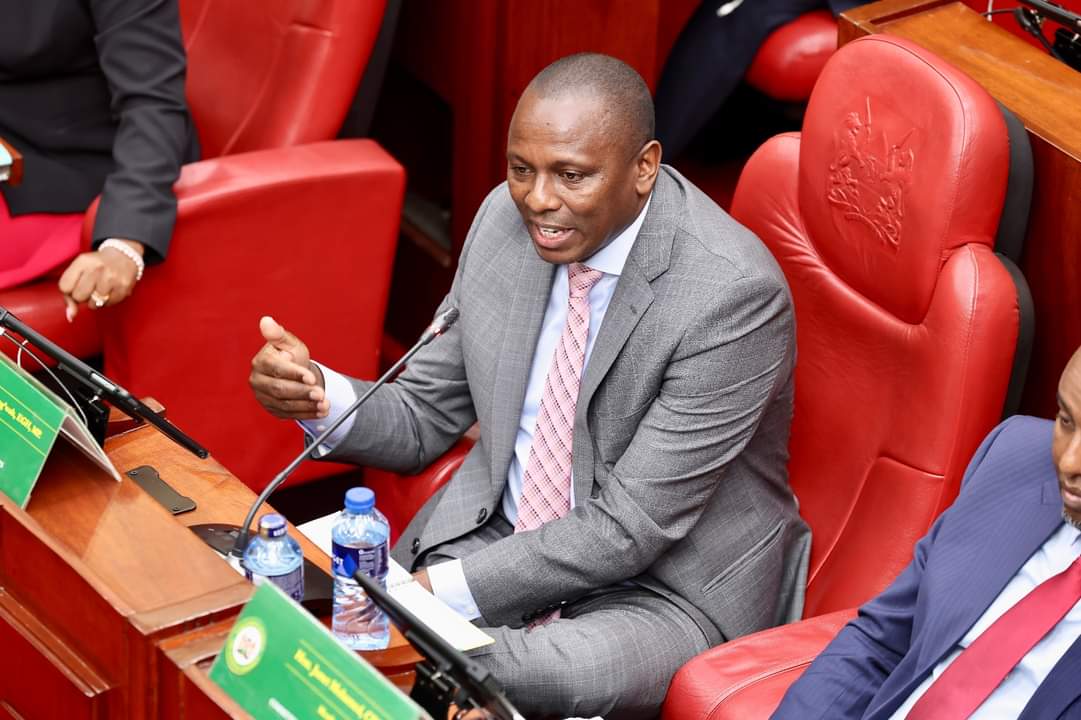
Kikuyu MP Hon Kimani Ichung’wah gestures during getting of nominated CSs. Photo: Kimani Ichung’wah/Facebook
Critics argue that this provision could be misused to offer leniency to individuals who fail to meet their tax obligations, effectively bringing back rejected proposals from the Finance Bill 2024 through the “backdoor.”
“Amkeni!!! Kimani Ichung’wah has tabled in parliament a KRA Act Amendment Proposal which Kenyans rejected in the Finance Bill 2024. He wants to bring the waiver issues through the backdoor. These people don’t listen at all,” wrote businessman Mohamed Alinur on X (formerly Twitter), reflecting the frustration many Kenyans are expressing online.
The bill also seeks to expand the KRA’s functions, allowing it to offer educational programs and award certificates, which some see as an unnecessary expansion of the authority’s mandate.
The online uproar highlights the growing discontent with the government’s approach to taxation and financial regulation. Many fear that the reintroduction of these measures could lead to further unrest if the bill is passed into law. As debates continue, all eyes are on Parliament to see whether the controversial bill will face the same fate as its predecessor.
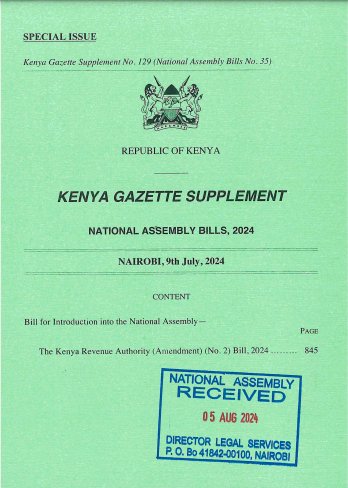
Page one of the copy of the Kimani-Sponsored bill
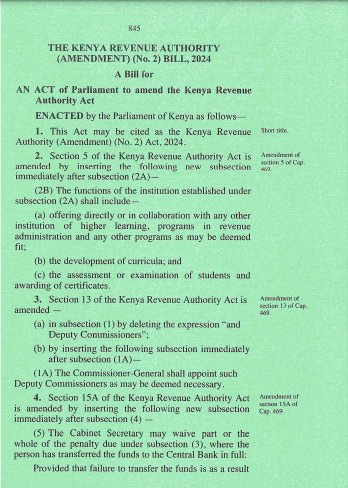
Page two of the bill drafted and sponsored by Kimani Ichung’wah


